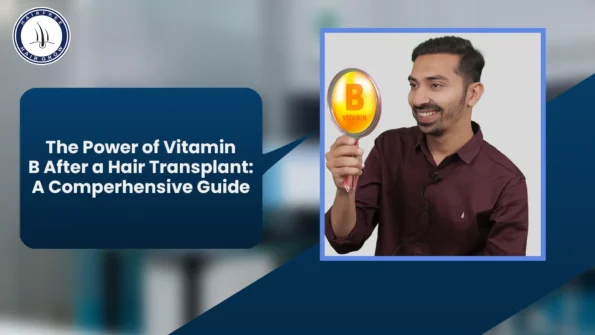Are you considering a hair transplant procedure or have recently undergone one? Your hair’s health and growth are essential after such a significant step. One potential key to promoting hair growth and maintaining its health post-transplant is through the use of Vitamin B supplements. In this blog post, we will delve into the importance of Vitamin B for hair health, the benefits it offers post hair transplant, and how you can incorporate it into your post-transplant care routine. Boost recovery and support hair growth with essential vitamins after hair transplant.
Understanding Vitamin B and Its Role in Hair Health
Vitamin B is a group of essential water-soluble vitamins that play a crucial role in maintaining overall health and well-being. Within the Vitamin B family, certain B vitamins are known to have specific benefits for hair health. These include Biotin (B7), Niacin (B3), Pantothenic Acid (B5), and Cobalamin (B12).
Benefits of Vitamin B for Hair Growth Post-Transplant
Supports Hair Follicle Health
Vitamin B helps in nourishing and supporting the hair follicles, which are essential for healthy hair growth. After a hair transplant, the existing and transplanted hair follicles require proper nutrition to thrive.
Promotes Cell Regeneration
B vitamins play a role in promoting cell regeneration, which is crucial for the growth of new hair and the healing process post-surgery.
Reduces Hair Loss
Some studies suggest that B vitamins, particularly Biotin, can help in reducing hair shedding and strengthening the hair shaft, thus reducing the risk of post-transplant hair loss.
Improves Blood Circulation
Certain B vitamins like Niacin help in improving blood circulation to the scalp, ensuring that essential nutrients reach the hair follicles efficiently.
Incorporating Vitamin B into Your Post-Transplant Care Routine
Dietary Sources
Include Vitamin B-rich foods in your diet such as eggs, nuts, seeds, whole grains, leafy greens, and lean meats to ensure you are getting an adequate amount of these crucial vitamins.
Supplements
Consider adding a Vitamin B complex supplement to your daily routine after consulting with your healthcare provider. Supplements can help fill any nutritional gaps and support your hair health post-transplant.
Topical Treatments
Some hair care products contain Vitamin B ingredients that you can apply topically to the scalp to promote hair growth and overall hair health.
Dietary Sources of Vitamin B
One of the most natural ways to increase Vitamin B intake is through diet. Foods rich in B vitamins include:
- Whole grains: such as brown rice, oats, and quinoa.
- Lean meats: such as poultry, fish, and lean cuts of beef.
- Eggs: particularly the yolk, which is rich in Biotin.
- Dairy products: such as milk, cheese, and yogurt.
- Legumes: such as lentils, beans, and chickpeas.
- Nuts and seeds: such as almonds, sunflower seeds, and peanuts.
- Leafy green vegetables: such as spinach, kale, and broccoli.
Conclusion
In conclusion, Vitamin B plays a vital role in promoting hair growth and maintaining hair health, making it a valuable addition to your post-hair transplant care routine. Remember to consult with your healthcare provider or a nutritionist before starting any new supplements to ensure they are safe and suitable for you. By incorporating Vitamin B-rich foods, supplements, and topical treatments into your regimen, you can support the growth of healthy, strong hair post-transplant.
Remember, a balanced diet, proper hydration, and a healthy lifestyle all contribute to optimal hair growth and overall well-being. Take care of yourself and your hair, and enjoy the benefits of Vitamin B on your hair transplant journey!

Written By
Dr. Pankaj Khunt
MD – Ukraine
Dr. Pankaj Khunt is a leading hair restoration expert specializing in vitamins after hair transplant procedures. He offers tailored advice to promote recovery, support hair growth, and enhance overall scalp health with evidence-based nutritional care.
Disclaimer
We’ve made all possible efforts to ensure that the information provided here is accurate, up-to-date and complete, however, it should not be treated as a substitute for professional medical advice, diagnosis or treatment. See Detailed Disclaimers Here.

